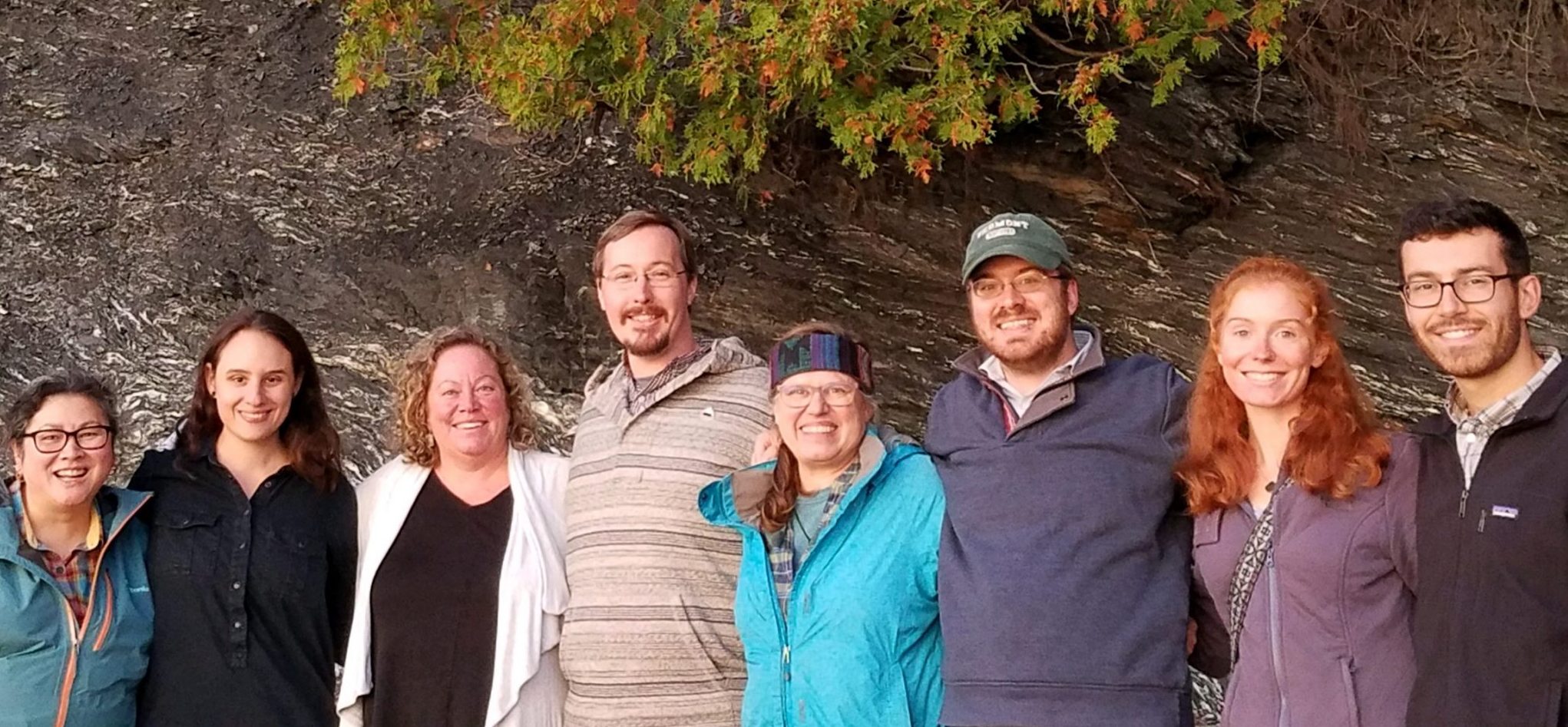Living in a place like Vermont, with endless opportunities to get lost in the woods far from any road or village, it’s easy to forget that there are also spectacular natural areas nestled within our cities and towns.
Rock Point is one of these places. Located less than a mile from downtown Burlington, it offers walking and hiking trails on 130 acres of land (owned by the Episcopal Church in Vermont) along the shores of Lake Champlain, available for public use.
Yesterday evening, some of the VNRC crew enjoyed a tour of Rock Point with the City of Burlington’s field naturalist, Alicia Daniel*, through an experience arranged by Cindi Wight, Director of Burlington Parks, Recreation, and Waterfront. As Daniel guided us through one of the sanctuary’s well-worn trails, she taught us about different types of trees and gave us a crash course on identifying animal tracks.
Daniel spoke of human history, too. She pointed out the former site of a castle-like school for boys run by the Episcopal Church (only a mysterious stone staircase remains) and a scrubby field where the students once held military drills and demonstrations (the “Parade Ground”) that is yearning to turn into a forest again.
We neared closer to the water, and Lake Champlain came into view at peak golden hour. Though it was hard to turn away from the sparkling water, the view behind us — the Champlain Thrust — was just as impressive.
A “thrust” is a fault where older rocks have been pushed up over younger rocks (learn more via UVM’s Geology department). Daniel explained the unique geological history that led to this peculiarity. As the sun went down, we learned a lot about how Vermont became Vermont, nearly 450 million years ago.
Soon after, the team returned to the North End of Burlington for dinner, a five minute drive away. What a wonderful reminder that when conserved and lovingly managed, as Rock Point is, the most special natural places to discover can be found in urban areas.
*If you’re interested in going on adventures like this one, contact Alicia (and learn more about the Vermont Master Naturalist program) at https://vermontmasternaturalist.org/.
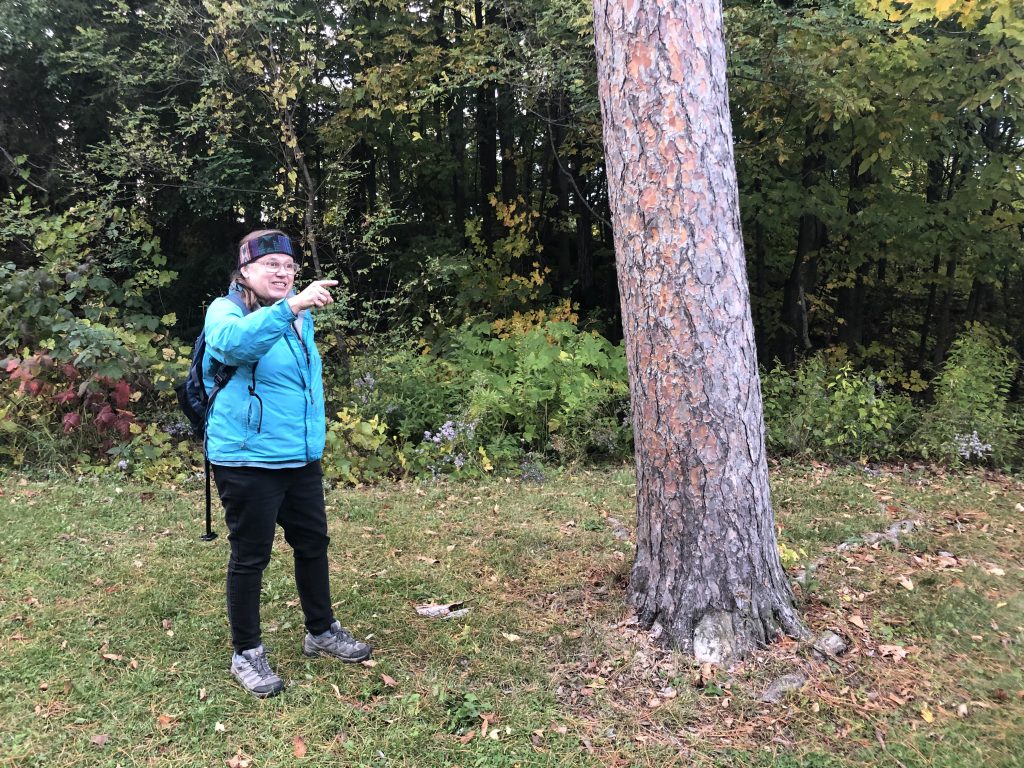
Alicia Daniel, field naturalist for the City of Burlington 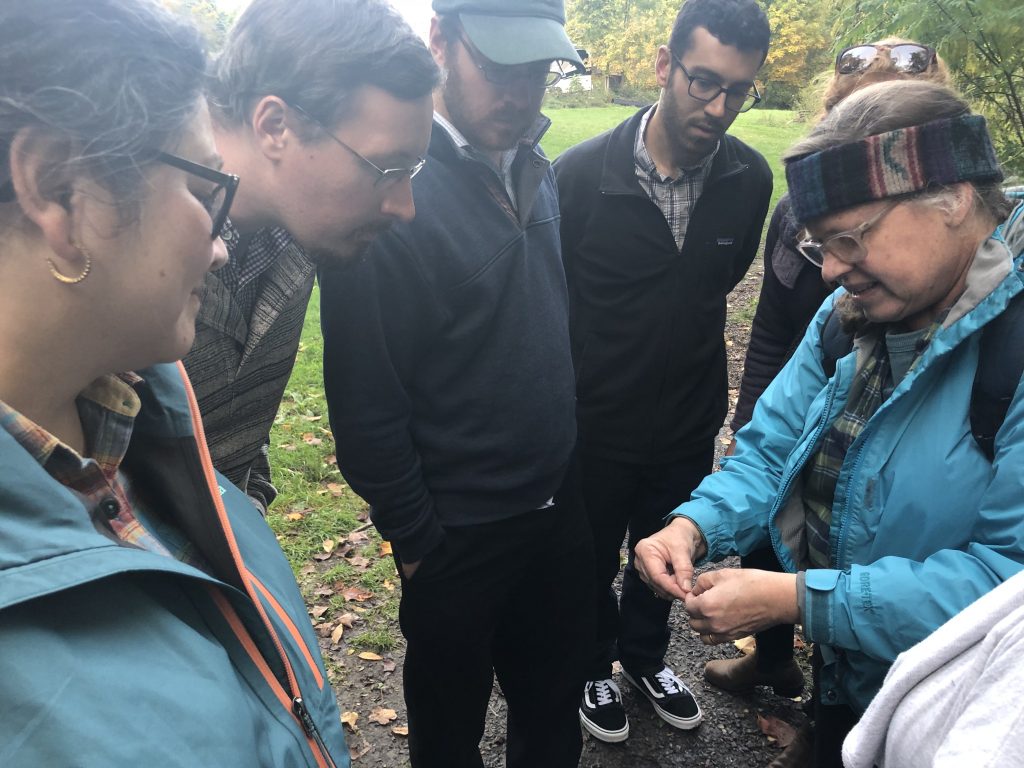
Learning about jewelweed 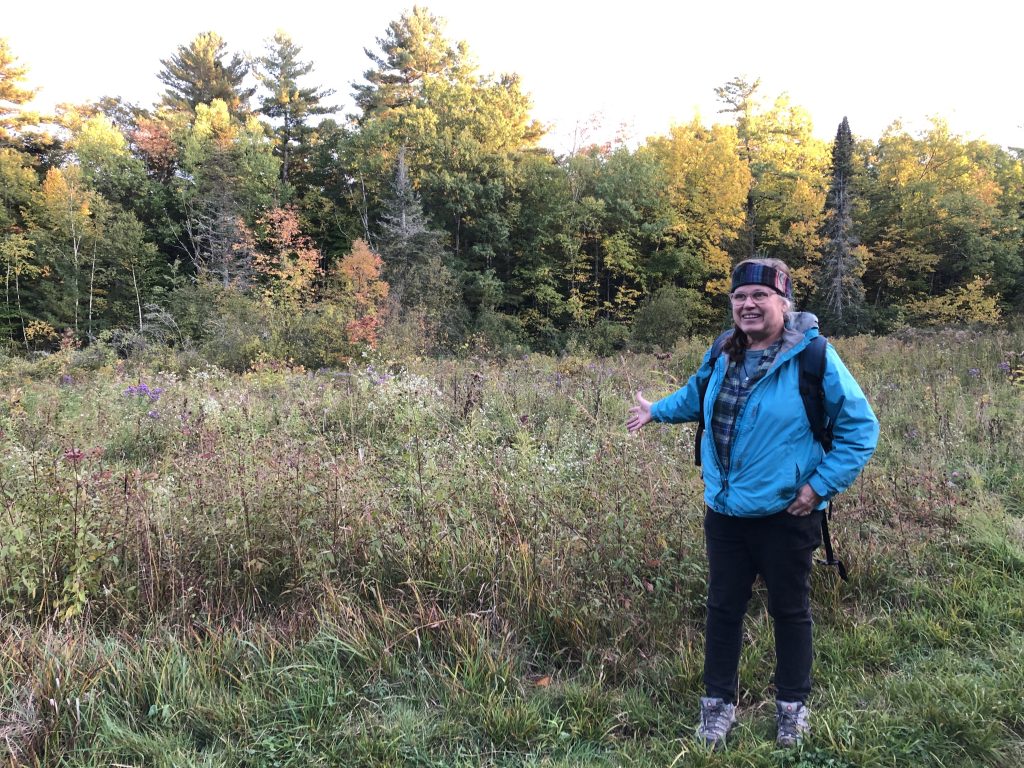
The former Parade Ground, growing wild again 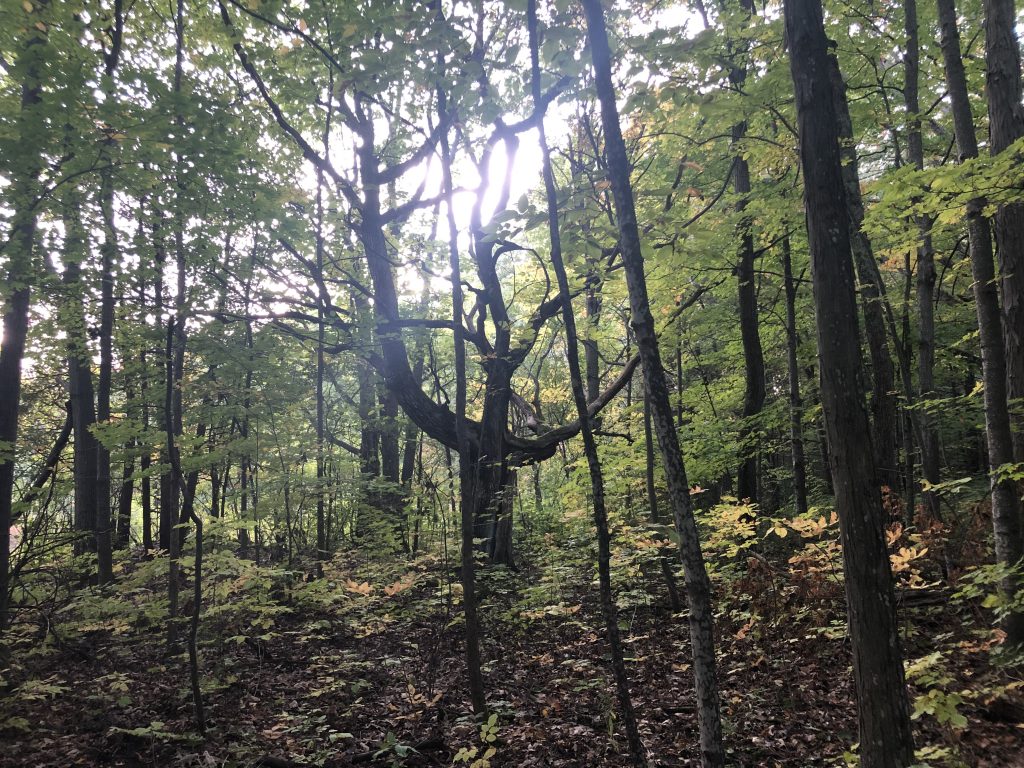
A sure sign that this forested area used to be a pasture? This “wolf tree,” with outstretched branches that indicate the availability of light it once enjoyed in all directions. 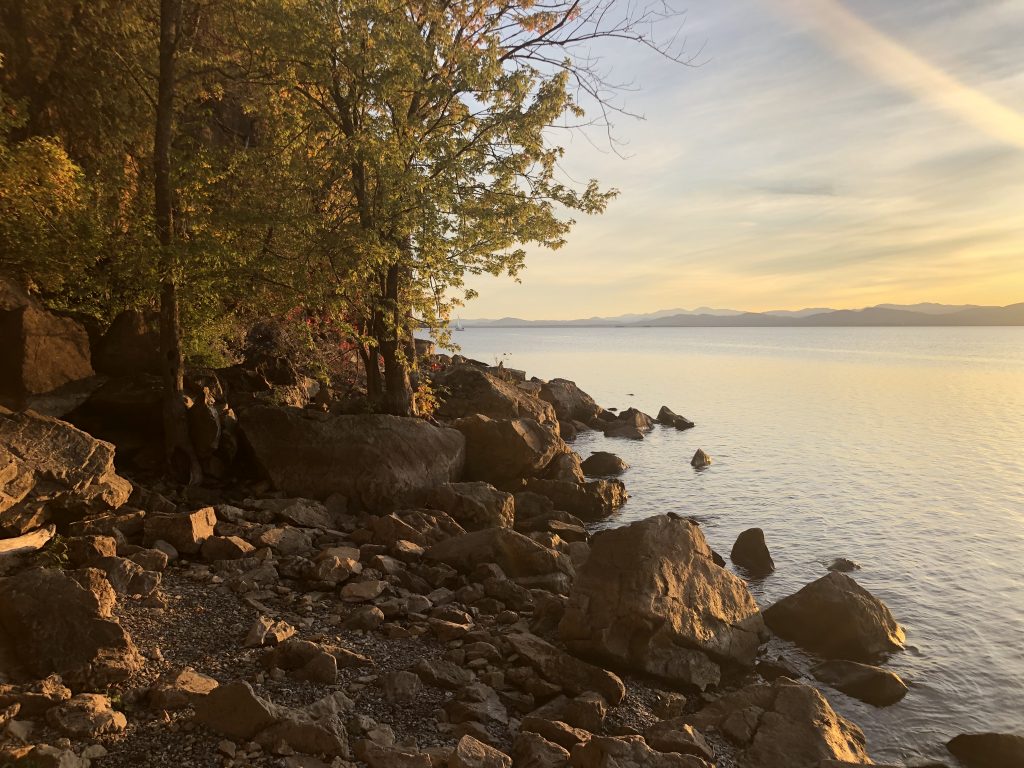
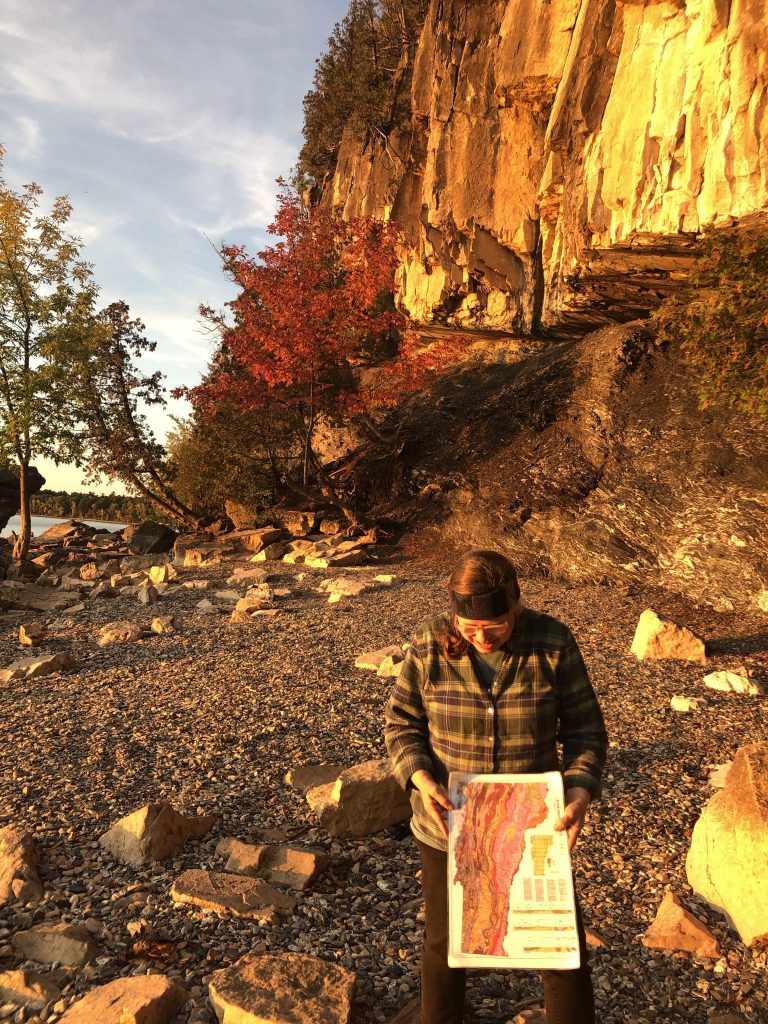
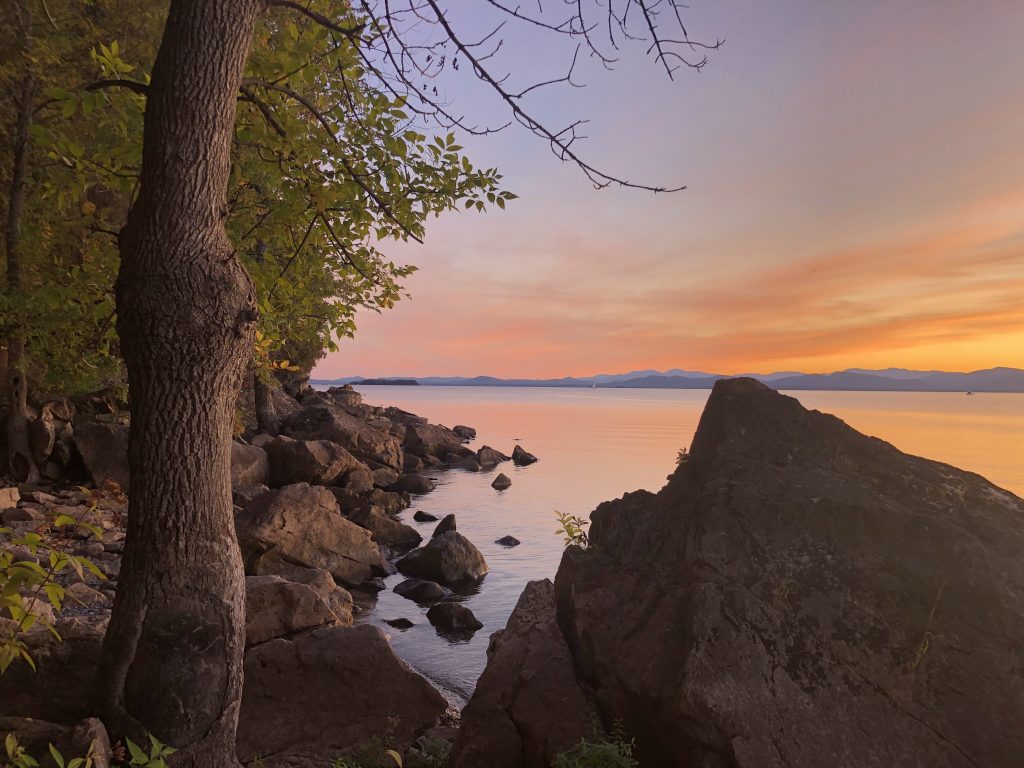
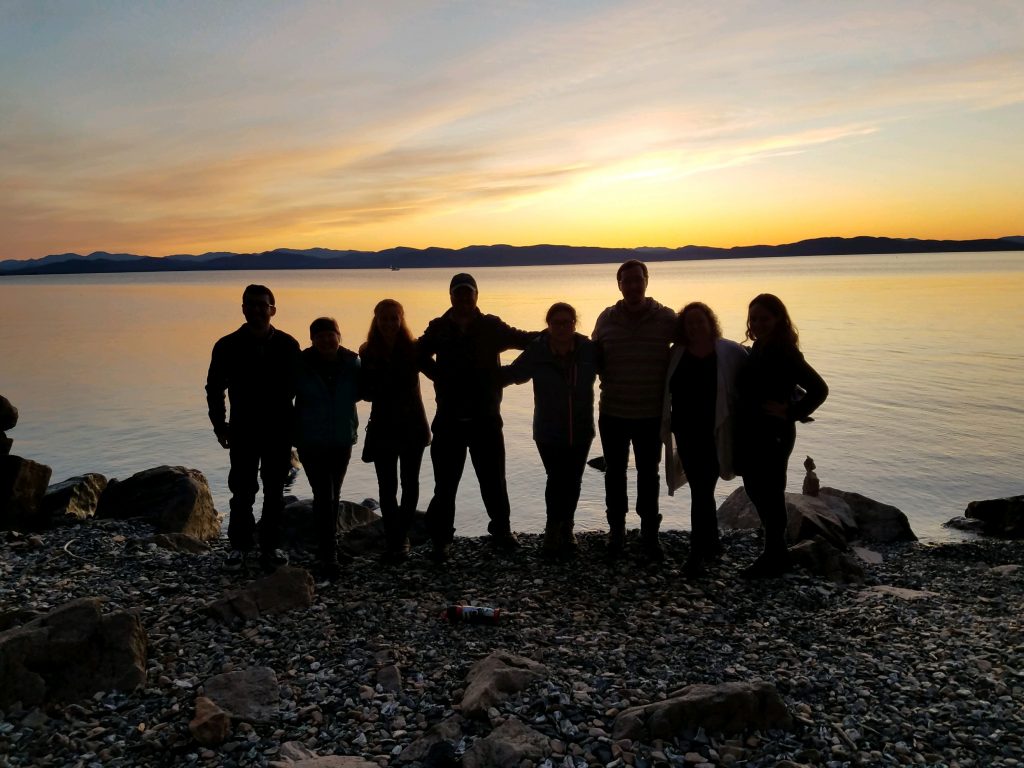
An evening well spent!




